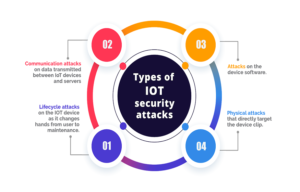The hospitality sector is a minefield of challenges for hotels. Hotel managers have to grapple with the constantly evolving demands of modern-day guests, a chronic labor shortage, a never-ending pursuit of profitability, and a host of other challenges. The consistency and quality of online reviews, high staff turnover, increased operational expenses, and the need to match technological advancements are a few of them. This article will delve into the most pressing challenges hotels face, including customer service, staffing, financial management, technology adoption, and sustainability. Most notably, it offers proven interventions that can help hotels surmount each of these challenges, enhancing their competitiveness in a crowded market.
1. Optimizing revenue with hotel revenue management systems
Many hotels have achieved high levels of profitability by deploying advanced revenue management systems. A hotel revenue management system is a set of technology solutions with built-in algorithms and data analytics that enable hotels to dynamically price their rooms based on demand, seasonal trends, and competitors’ rates among other factors. Without proper implementation, a hotel may lose a large share of its revenue to competition.
The solution is to invest in a top-tier revenue management system and staff a team to run the system effectively. The system should seamlessly integrate to PMS as well as booking engines among other systems for optimal functioning. It is also important to train the team on how to generate data insights required to make pricing decisions. In addition, the hotel should have monitoring alongside evaluation systems to check on the system’s performance, all these implemented will ensure that the hotel achieves high occupancy levels, reduces overbooking, and increases profit margin.
2. Meeting guest expectations
Due to the wide array of information available to the modern consumer, and shifting hotel guests, firms are more knowledgeable and discerning than ever. Modern consumers have access to hotel reviews, social media, as well as travel websites, giving them a clear picture of what should occur within an average hotel experience. Therefore, if their expectations are not met or exceeded, they will write the hotel negative reviews. As a result, the hard-earned image of a hotel can be severely tarnished, along with it could end up losing money.
Ultimately, the answer to the dilemma is to get out ahead of it. Continuing to provide excellent service to guests will demonstrate that the business continues to be accountable as well as responsive. In addition, businesses want to pay close attention to social media. A hotel must include exceptional customer service as a standard alongside create learning chances for all employees to achieve this level based on social science issues. Implementing good tactics for customer contact enhances the overall guest experience.
3. Staffing challenges
The hospitality industry’s most significant challenge is identifying and hiring excellent employees. The hotel has a high employee turnover rate, along with many people regard hotel employment only as a stepping stone to eventual employment rather than a career path on its own. This high level of employee turnover results in erratic, low service quality that is not sustained over time. Meanwhile, the busy, seasonal job puts additional stress on the workforce; this is because job requirements vary, as well as a shortage of staff during the busiest travel times puts extra strain on those already employed, resulting in tired workers as well as additional job loss.
Addressing manpower deficiencies, on the other hand, will necessitate a combination of activities. The hotel should provide competitive wage alongside reward packets. However, the hotel must provide its personnel with real professional growth possibilities to maintain them. Furthermore, the hotel could design employment incentive programs to raise morale and the overall work setting. Finally, the hotel must train all of its team for various jobs. This helps to develop a more dependable, agile workforce that may compensate for labor deficit by peak travel times while ensuring that guest experience is not negatively impacted.
4. Maintaining profitability
Given the rising costs and intense competition, profitability is very challenging to achieve for hotels. Everything from utilities and supplies to marketing and the cost of personnel poses difficulties in balancing costs and achieving the highest revenue. Moreover, due to recessions and seasonality factors, it is also tough to maintain profitability consistently.
There is a way to alleviate the above-mentioned problem: hotels need to use revenue management strategies. They can rely on data and analytical systems to find the optimal pricing and staying rates that would support the peak demand and demand at all pools. Additionally, it is possible to lower operating costs by introducing energy-efficient initiatives or improving operations. Ancillary services and upselling strategies can also help in generating additional revenue.
5. Keeping up with technology
Nowadays, technology is deeply integrated throughout the hospitality industry, ranging from online bookings and keyless entry systems to in-room entertainment and smart room controls. Failure to implement the most recent technological advancements may place hotels at a competitive disadvantage since consumers demand a smooth and tech-savvy experience. The solution to the problem is as follows.
Investing in innovative technology can optimize operations, advance guest experience, and even provide increased efficiency. However, the proper balance between innovativeness and practicability should be maintained. For hotels, it is critical to consider their specific needs and select a proper technology for their goals and budgets. At the same time, training staff to utilize new systems effectively might be a solid investment.
6. Environmental sustainability
Due to the increasing concern for climate change and guests’ heightened awareness of their carbon footprint, there is also an increased demand for hotels committed to eco-friendly operations. Aside from environmental and ethical considerations, it puts irresponsible competitors out of the market. The aforementioned energy-efficient lighting and water-saving systems and recycling, together with a line of other measures, may reduce the hotel’s environmental damage.
Moreover, an emphasis on using locally grown food and providing green amenities, further explained in the amenity and service sections, will also demonstrate the business’s commitment to the environment. Guests should also be informed of all the above to allow them to join the hotel in a more sustainable lifestyle.
Conclusion
Indeed, the hospitality industry faces numerous challenges such as continually changing guest demands, lack of staff, profitability, and rental costs, growing reliance on technology, and pressure on environmental sustainability with revenue management system software. Nonetheless, these challenges have practical solutions, and hotels can address them through practical solutions to secure their future in a rapidly expanding market. Some of the strategies include investing in customer service skills, providing a competitive remuneration package that ensures one can attract and retain top talent, utilizing data and analysis to inform effective revenue management, acceptance but cautious application of technology, and environmental sustainability.















+ There are no comments
Add yours